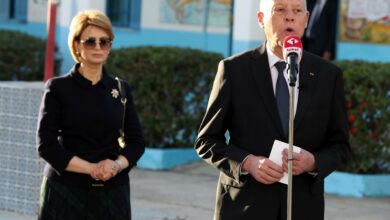Opposition leader Sitiveni Rabuka sworn in as Fiji PM

Bangkok, Dec 24 (EFE).- Fiji’s opposition leader Sitiveni Rabuka began his term as prime minister of the country Saturday after a close secret vote in the first session of parliament after mid-month elections, in which he obtained the majority of support thanks to a coalition of parties.
Rabuka, leader of the Popular Alliance, and who will lead the country for the next four years, was sworn in along with his new ministers before the President of Fiji Ratu Williame Katonivere, in a Saturday session attended by senior representatives of all government branches.
The appointment and ratification of Rabuka, who already led the country between 1992 and 1999, took place after a close secret vote in parliament, the result of which was tighter than expected, producing 28 votes for Rabuka and 27 support for outgoing Prime Minister Frank Bainimarama.
Likewise, it puts an end to 10 days of tensions and uncertainties after the celebration of some busy elections on Dec. 14, which gave victory to the Fiji First government, with 26 seats, but was matched by the union between the opposition Popular Alliance, with 21 seats, and the National Federation, with five.
The inauguration of Rabuka marks the end of a 16-year era of Bainimarama in power, which he had held since the coup he led in 2006 and who, later, managed to remain prime minister after winning the 2014 and 2018 elections at the head of the party Fiji First.
The elections were marked by allegations of fraud and friction between the candidates, after the Electoral Commission temporarily suspended the vote count due to a technical failure in the application of electoral results.
Amid the escalation of tensions in the last week, the army and police tightened security after receiving reports of “civil unrest plans” that were not detailed, which has generated suspicions in certain sectors of the Fiji population, which It has a long history of coups.
Fiji, with a population of more than 900,000, is considered a key nation in the Sino-US tussle for influence in the South Pacific and has been instrumental in the region’s response to growing competition between the two powers.
In the past, Rabuka has said on several occasions he favors Western-style democracy.
The now prime minister will also have other challenges ahead, such as the climate crisis, the drop in tourism as a result of the Covid-19 pandemic or the ethnic rivalries in the country, marked by tensions between the Fijian Melanesian community and that of Indian origin since its independence from the United Kingdom in 1970. EFE
nbo/lds





